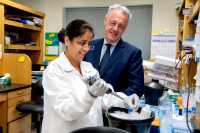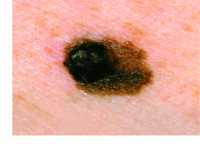AACR, Author Interviews, Cancer Research / 19.12.2019
Neoantigens Can Stimulate Immunity in Relapsed Multiple Myeloma
MedicalResearch.com Interview with:
Dr. Samir Parekh, MBBS
Associate Professor
Medicine, Hematology and Medical Oncology
Icahn School of Medicine at Mount Sinai
MedicalResearch.com: What is the background for this study? Would you briefly describe what is meant by 'neoantigens'? How might they be used to stimulate immunity in a multiple myeloma patients?
Response: Myeloma is considered a “cold” tumor for immunotherapy (as compared to some solid tumors such as melanoma) given the relatively fewer DNA mutations in an average myeloma patient. Our clinical experience suggests that this may not be totally correct. Our findings focus on mutations that can become antigens (neo-antigens) and challenges the stereotype. We can create vaccines based on peptides resulting from these mutations to stimulate immune responses.
(more…)



















 Mr Jue Sheng Ong, PhD Student
QIMR Berghofer’s Statistical Genetics Group
MedicalResearch.com: What is the background for this study? Response: Previous findings have shown conflicting results on whether coffee is associated with cancer risk.
To evaluate whether there’s any evidence for a causal relationship between coffee and cancer outcomes, we performed two types of association analyses using data from the half a million participants in the UK.
Mr Jue Sheng Ong, PhD Student
QIMR Berghofer’s Statistical Genetics Group
MedicalResearch.com: What is the background for this study? Response: Previous findings have shown conflicting results on whether coffee is associated with cancer risk.
To evaluate whether there’s any evidence for a causal relationship between coffee and cancer outcomes, we performed two types of association analyses using data from the half a million participants in the UK.











